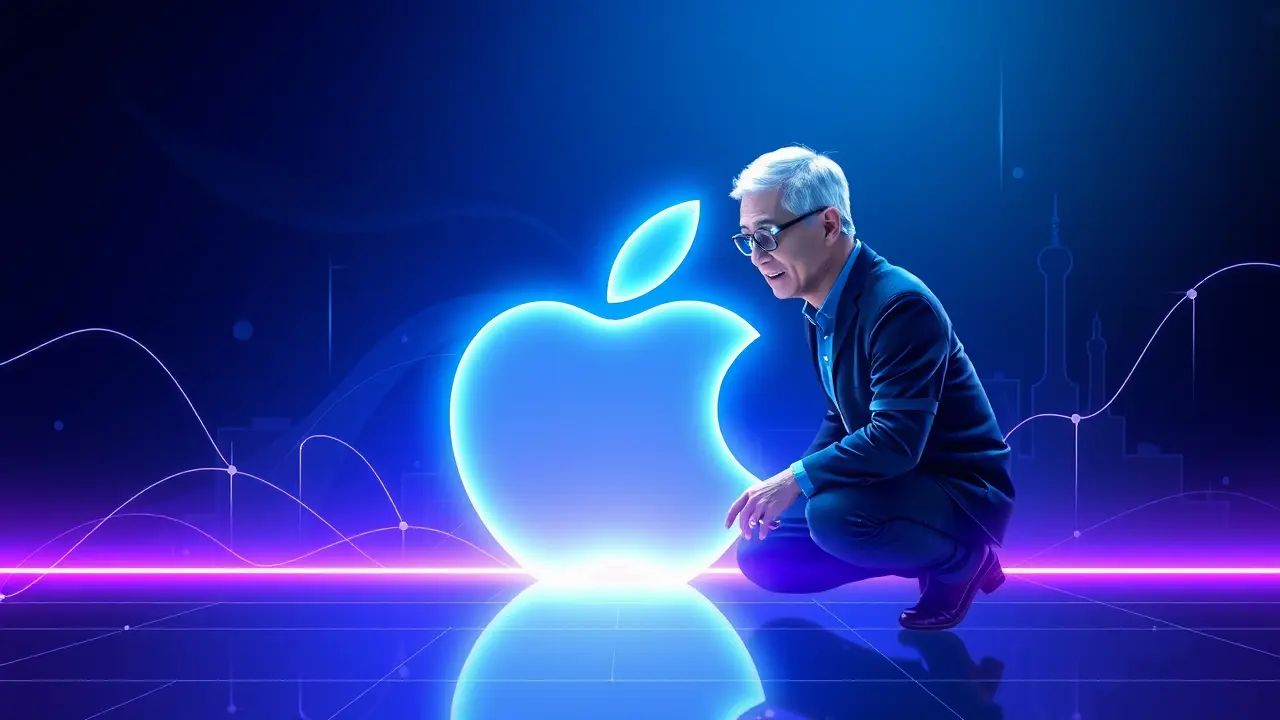Apple CEO Tim Cook pledges more China investment amid trade tensions.
In a calculated maneuver that reads like a geopolitical risk assessment, Apple CEO Tim Cook has strategically doubled down on his company's commitment to the Chinese market, a bold counter-intuitive play amid escalating trade tensions between Washington and Beijing that threatens to redraw the entire global tech supply chain map. Cook’s pledge, delivered in a high-stakes meeting in Beijing with Minister of Industry and Information Technology Li Lecheng, was not merely a corporate press release; it was a significant political signal, a deliberate act of reassurance aimed at the highest echelons of Chinese power during his second visit to the country this year, following a two-day stop in Shanghai where he opened a new flagship store—a physical manifestation of Apple’s deep entanglement with the world’s second-largest economy.The core scenario planners in Cupertino are clearly running models that see a protracted tech cold war as a primary risk, and their mitigation strategy is not retreat but deeper, more embedded engagement, a hedge against the catastrophic downside of decoupling. Consider the chessboard: Apple’s entire production ecosystem is overwhelmingly concentrated in China, with over 90% of its products, including the flagship iPhone, assembled there by a vast network of suppliers like Foxconn, creating an existential vulnerability that makes this investment pledge less a choice and more a strategic imperative for survival.The potential consequences of inaction are stark—supply chain disruptions that could wipe out billions in quarterly revenue, retaliatory regulatory hurdles or consumer boycotts within China, which is both Apple's largest manufacturing base and its third-largest retail market, a dependency that gives Beijing immense leverage. This move echoes historical precedents where multinational corporations have had to navigate the treacherous waters between superpower rivalries, reminiscent of IBM’s delicate dance during the Cold War or more recently, the plight of Huawei caught in the crossfire, though Apple’s situation is uniquely precarious given its scale and visibility.Expert commentary from geopolitical risk analysts suggests Cook is playing a long game, betting that the mutual economic destruction of a full-blown tech divorce is a sufficient deterrent for both capitals, while simultaneously working to diversify assembly to places like India and Vietnam—a dual-track strategy of public commitment to China and quiet contingency planning elsewhere. The broader context is a global economy fracturing into competing technological spheres of influence, with the U.S. pushing for restrictions on advanced semiconductor exports and China aggressively pursuing self-sufficiency in chips and software; Apple, as an American company with a Chinese soul, is trying to be a bridge, but the structural pressures may ultimately prove too great, making Cook’s investment pledge a high-risk bet on a future of managed competition rather than all-out economic war.
Latest News
The charts are whispering what the true believers have felt in their bones for weeks—Dogecoin is carving out a bottom.
17 hours ago5 comments
The Institute for Fiscal Studies has thrown a stark warning onto Rachel Reeves's desk, urging the Chancellor to confront a potential £22 billion shortfall in
17 hours ago3 comments
Alright, let's break down this absolute heater of a performance from the Chicago Blackhawks, because if you missed this one, you missed a party.
18 hours ago5 comments
The ice was hot last night in the NHL, folks, serving up a slate of games that felt less like a regular season Tuesday and more like a playoff preview with a
18 hours ago3 comments
The XRP chart is painting a tantalizing picture for those with the stomach to withstand the relentless pressure from crypto's leviathans.
18 hours ago4 comments
It’s in the small shifts, the quiet recalibrations of a Thursday morning, where the most meaningful change often takes root.
18 hours ago4 comments
In a move that sent ripples of quiet confidence through the crypto ecosystem, blockchain intelligence firms tracked a monumental treasury allocation from
18 hours ago4 comments
In a move that would have drawn a nod of approval from historical figures like Churchill, who understood the delicate balance of power within democratic
18 hours ago2 comments
MA
Maya Chen123k18 hours ago
interesting to see a company try to play both sides like this tbh feels like a risky move but i guess they don't have much choice
0
BR
Brenda Simmons123k21 hours ago
i truly must commend the author on such a thorough and articulate analysis of the situation it is a rather precarious position for a company to be in, if i may say so
0
JA
Jamie Larson123k22 hours ago
tbh this feels like such a risky move idk if doubling down is the play here smh
0
JA
Jamie Larson123k1 day ago
this makes me want to map out the whole geopolitical chessboard with you tbh such a risky play but you gotta admire the audacity
0
